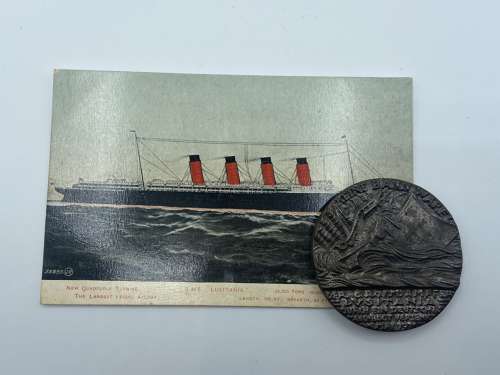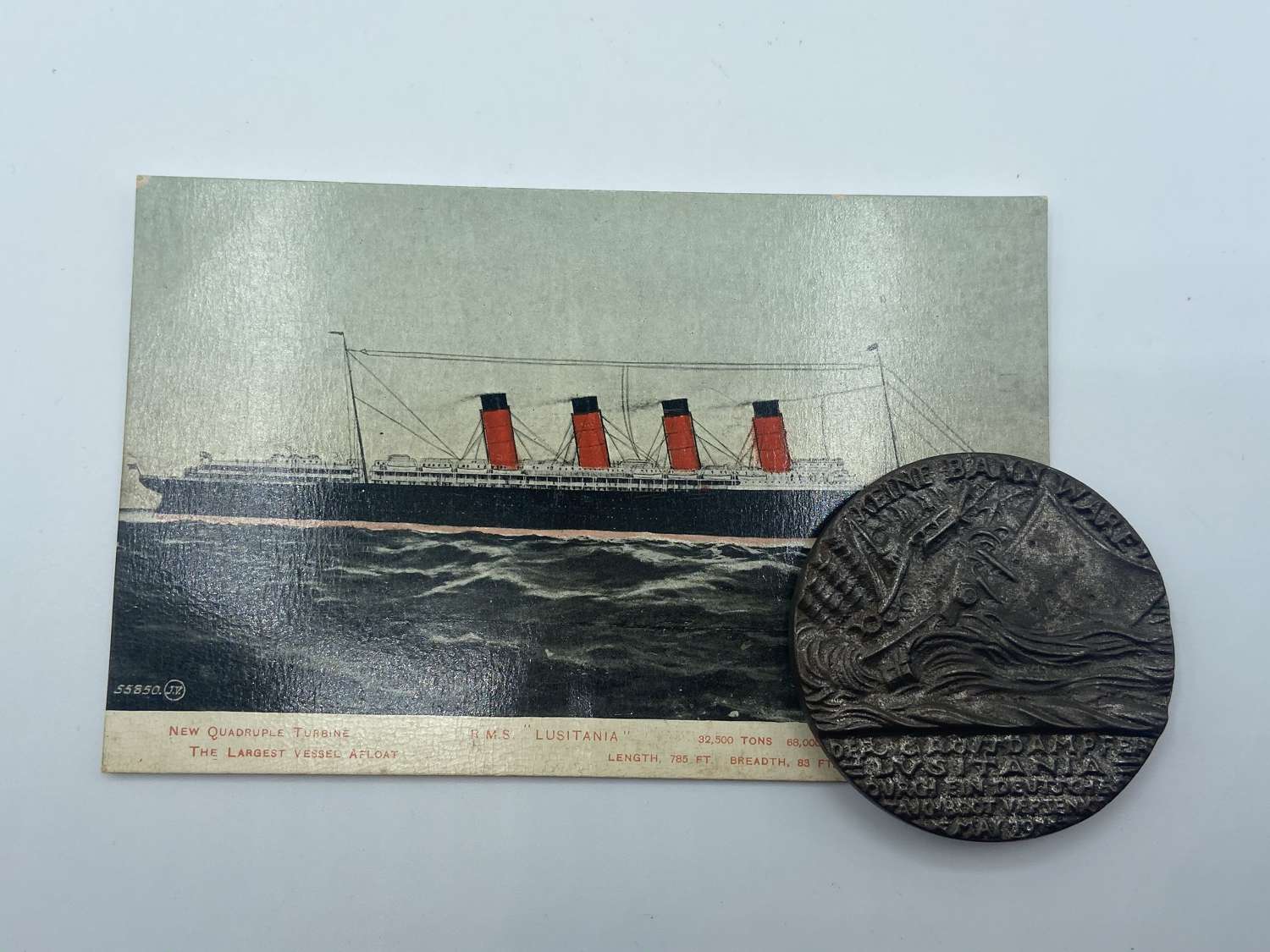
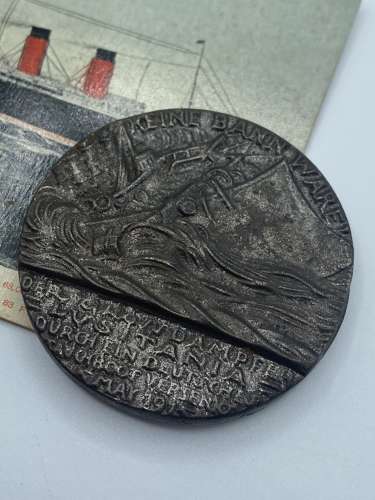
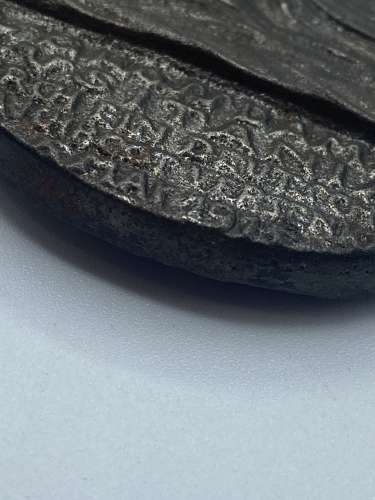
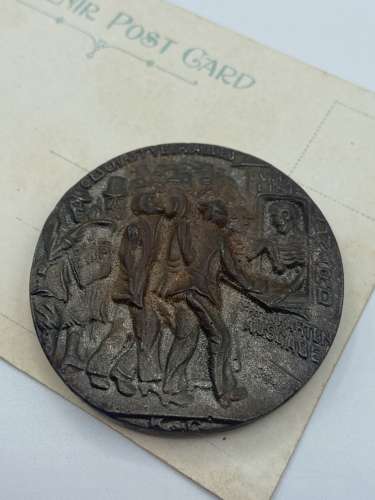
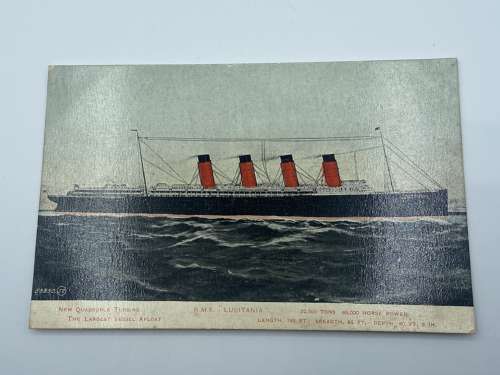
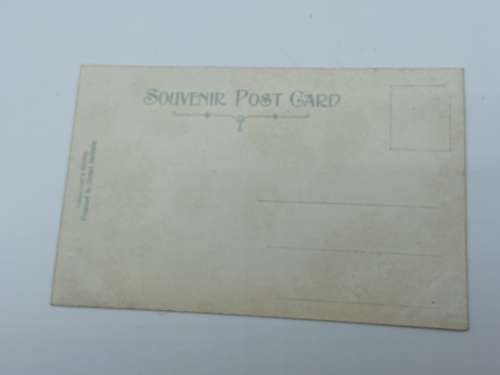
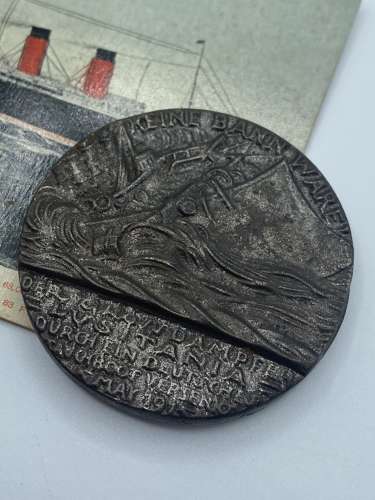
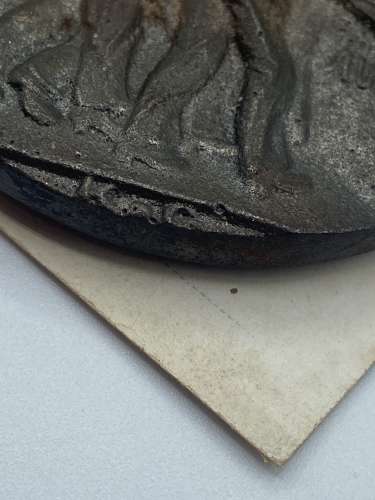
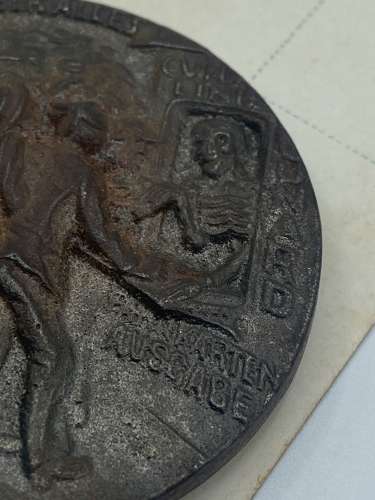
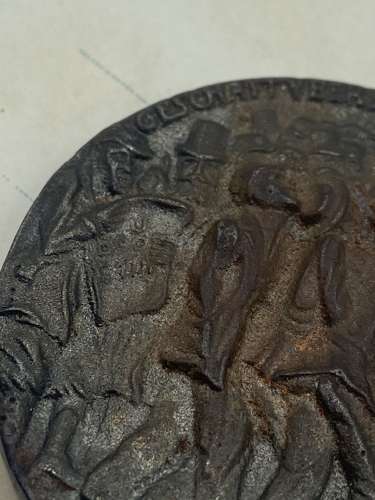
WW1 German 5 Mai 1915 Lusitania Iron First Obverse Medal & Post Card
Code: 11159
WW1 German 5 Mai 1915 Lusitania Iron First Obverse Medal By Karl Goetz.
THIS IS THE RARE FIRST OBVERSE MADE, THE ORIGINAL GERMAN ONE, 5 MAI
There is also a period post card of the Lusitania with this medal.
The First Obverse: The Lusitania slipping beneath the waves stern first (opposite to what really happened) and with obvious war contraband on her deck: cannon, war planes, armaments, with the admonishment above "No Contraband Goods!" Below, in exergue, the German equivalent of, "The liner Lusitania sunk by a German submarine May 5, 1915." This is Goetz' first obverse which bore the incorrect date of 5 MAI (the German spelling), an error he later attributed to an flawed newspaper account. And that error is what made this such a controversial piece.
The reverse side: A skeleton (representing death) sells passage at the Cunard Line ticket office. Along the top of the medal are the German words for "Business Above All" mocking the Cunard Line for willingly placing passenger's lives at stake. At left is a man reading a paper on which are the German words for "U-Boat danger", while behind him is the figure of the German ambassador, Count Johann-Heinrich von Bernstorff, raising a wagging finger as a reminder that the Germans had placed a warning advertisement in the same newspaper as the Cunard Lines sailing schedule.
A skeleton (representing death) sells passage at the Cunard Line ticket office. Along the top of the medal are the German words for "Business Above All" mocking the Cunard Line for willingly placing passenger's lives at stake. At left is a man reading a paper on which are the German words for "U-Boat danger", while behind him is the figure of the German ambassador, Count Johann-Heinrich von Bernstorff, raising a wagging finger as a reminder that the Germans had placed a warning advertisement in the same newspaper as the Cunard Lines sailing schedule.
The sinking of RMS Lusitania on 7 May 1915 was a hugely significant event during the First World War. The ship was sunk by a torpedo, a fact indicative of the increased use of submarines in marine warfare, which helped it become even more dangerous than it had been previously. The tragedy of the loss of life that included civilian passengers had global repercussions that contributed to the eventual decision taken by the United States to enter the conflict. It also sparked something of a medallic propaganda war.
The German artist Karl Goetz was so incensed by the mere idea that a passenger liner might have been used for military purposes that he decided to produce a medal satirising the subject. He mistakenly stated on the medal that the date of the sinking was 5 May – two days earlier than the actual event. This caused an outcry in Britain and accusations that the sinking had been premeditated by the Germans. This use of the wrong date was in fact a mistake, but copies of the medal were made and distributed in Britain in protest against the Germans’ use of medallic art to effectively celebrate a tragedy. The British copy had its own presentation box that also included a document detailing the reasons behind its production.
This will be sent via 1st class signed for and dispatched within two to three working day’s.
